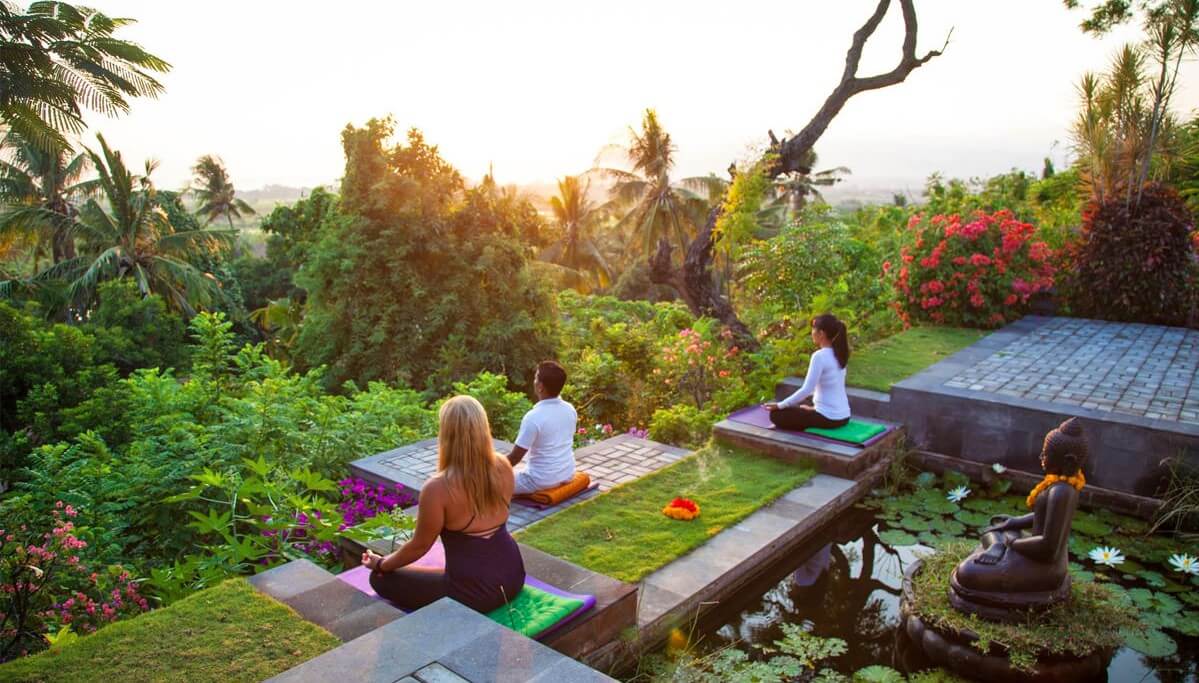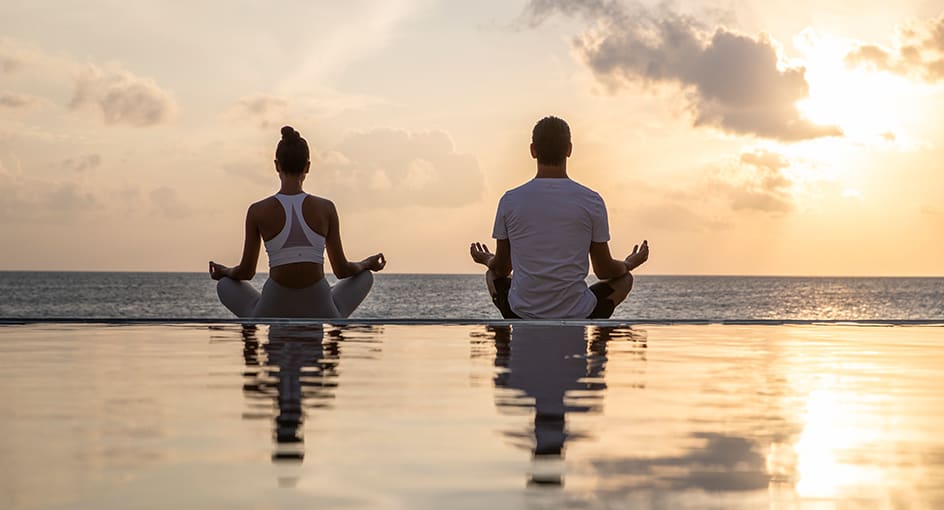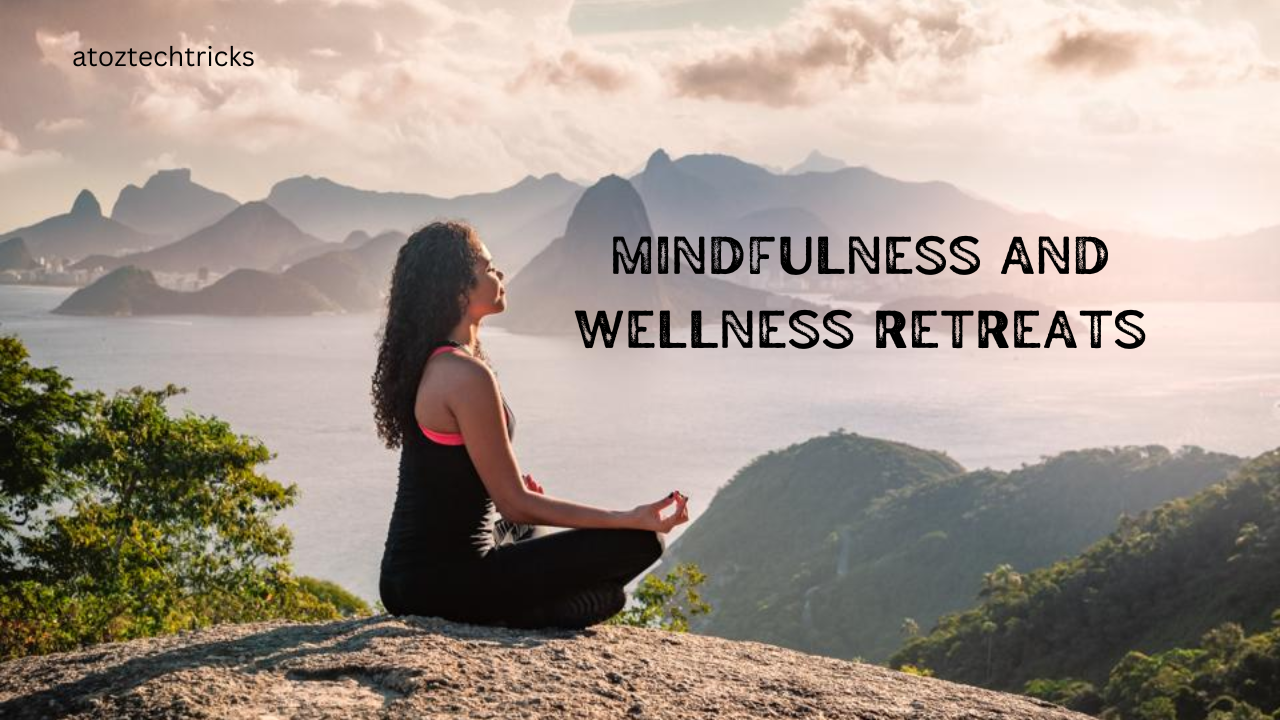Mindfulness and Wellness Retreats: A Path to Rejuvenation and Inner Peace
In today’s fast-paced world, where stress and anxiety seem to be constant companions, the search for inner peace and mental clarity has never been more prevalent. One avenue that has gained significant attention in recent years is the concept of mindfulness and wellness retreats. These retreats offer individuals a sanctuary from the chaos of everyday life, providing a space for introspection, relaxation, and personal growth. In this article, we’ll explore the world of mindfulness and wellness retreats, delving into their benefits, what to expect, and how they can transform your life.
Understanding Mindfulness and Wellness Retreats
Mindfulness and wellness retreats are specialized programs that promote mental, physical, and emotional well-being. These retreats often take place in serene, natural settings, away from the hustle and bustle of urban life. The primary focus of these retreats is to cultivate mindfulness—a state of awareness and presence at the moment—while promoting overall wellness through various practices such as yoga, meditation, healthy eating, and holistic therapies.
The Philosophy Behind Mindfulness
At the core of mindfulness and wellness retreats is the philosophy of mindfulness. Mindfulness, rooted in ancient Buddhist traditions, has gained widespread recognition in the modern world as a powerful tool for managing stress, anxiety, and depression. It involves paying attention to the present moment without judgment, allowing individuals to connect with their thoughts, emotions, and surroundings in a deeper, more meaningful way.
Health Food and Beverage Brands: Pioneers of Wellness in the Modern Market
The practice of mindfulness encourages individuals to slow down, observe their thoughts and feelings, and develop a sense of acceptance and compassion toward themselves and others. This heightened awareness can lead to a profound sense of inner peace, improved mental clarity, and a greater ability to cope with life’s challenges.
The Growing Popularity of Wellness Retreats
In recent years, wellness retreats have experienced a surge in popularity as more people recognize the importance of self-care and mental well-being. The pressures of modern life, including demanding work schedules, social obligations, and the constant bombardment of information from digital devices, have led many individuals to seek refuge in retreats that offer a break from these stressors.
Wellness retreats provide a holistic approach to health and well-being, addressing the physical, mental, and emotional aspects of a person’s life. They offer participants an opportunity to disconnect from the distractions of daily life, reset their minds and bodies, and return to their routines with a renewed sense of purpose and vitality.

The Benefits of Mindfulness and Wellness Retreats
Attending a mindfulness and wellness retreat can be a transformative experience, offering numerous benefits that extend far beyond the duration of the retreat itself. Here are some of the key advantages:
1. Stress Reduction and Relaxation
One of the most significant benefits of mindfulness and wellness retreats is their ability to reduce stress and promote relaxation. The tranquil environments in which these retreats are held, coupled with practices like meditation and yoga, help participants unwind and release tension. By focusing on the present moment and letting go of worries about the past or future, individuals can experience a profound sense of calm and serenity.
2. Enhanced Mental Clarity and Focus
Mindfulness practices are known to improve cognitive function, enhancing mental clarity and focus. Retreats provide an ideal setting for individuals to cultivate mindfulness through guided meditation sessions, breathing exercises, and mindful movement. These practices help participants develop greater awareness of their thoughts and emotions, leading to improved concentration and decision-making skills.
3. Emotional Healing and Self-Discovery
Mindfulness retreats offer a safe space for emotional healing and self-discovery. Participants are encouraged to explore their inner landscapes, confront unresolved emotions, and develop a deeper understanding of themselves. This process can be incredibly liberating, allowing individuals to let go of past traumas, embrace self-compassion, and cultivate a more positive outlook on life.
4. Physical Well-Being
Wellness retreats often include activities that promote physical well-being, such as yoga, hiking, and nutritious meals. These activities not only help participants stay active but also encourage healthy habits that can be carried forward into everyday life. Yoga, in particular, is a powerful practice that combines physical postures with mindful breathing, promoting flexibility, strength, and relaxation.
5. Improved Relationships and Social Connections
Many mindfulness and wellness retreats offer opportunities for group activities and communal experiences. Participants often find themselves forming deep connections with like-minded individuals who share their journey toward self-improvement. These connections can provide valuable support and encouragement, fostering a sense of belonging and community.
6. Enhanced Creativity and Problem-Solving Skills
The mental clarity and focus gained through mindfulness practices can lead to enhanced creativity and problem-solving skills. By quieting the mind and reducing mental clutter, individuals can tap into their creative potential and approach challenges with a fresh perspective. This can be particularly beneficial for professionals seeking to enhance their productivity and innovation.
7. Long-Lasting Positive Effects
The benefits of mindfulness and wellness retreats often extend long after the retreat has ended. Participants typically return to their daily lives with a renewed sense of purpose, improved mental and emotional well-being, and a commitment to maintaining the practices they learned during the retreat. These long-lasting effects can lead to sustained improvements in overall quality of life.
Fitness Training and Coaching: A Comprehensive Guide to Achieving Your Goals
What to Expect at a Mindfulness and Wellness Retreat
If you’re considering attending a mindfulness and wellness retreat, it’s natural to wonder what the experience will be like. While each retreat is unique, most share common elements that contribute to their effectiveness in promoting well-being.
1. Serene and Natural Settings
Mindfulness and wellness retreats are often held in serene, natural environments that promote relaxation and reflection. These locations may include mountain resorts, beachfront properties, forest lodges, or countryside retreats. The beauty of nature plays a significant role in enhancing the overall experience, allowing participants to connect with the natural world and find solace in its tranquillity.
2. Daily Meditation and Mindfulness Practices
Meditation is a central component of mindfulness retreats. Participants can expect to engage in daily meditation sessions, often guided by experienced instructors. These sessions may include various forms of meditation, such as sitting meditation, walking meditation, and loving-kindness meditation. The goal is to cultivate mindfulness and presence in each moment, both during and outside of formal meditation practice.
3. Yoga and Physical Movement
Yoga is another common practice at wellness retreats. Yoga sessions are typically designed to accommodate participants of all skill levels, from beginners to advanced practitioners. The combination of physical postures, mindful breathing, and relaxation techniques in yoga helps participants release physical tension, improve flexibility, and achieve a state of balance and harmony.
4. Nutritious and Mindful Eating
Many wellness retreats emphasize the importance of nutrition and mindful eating. Participants are often provided with wholesome, nourishing meals that support overall health and well-being. Mindful eating practices encourage individuals to savour each bite, pay attention to hunger and fullness cues, and develop a healthier relationship with food.
5. Workshops and Educational Sessions
In addition to meditation and yoga, mindfulness and wellness retreats often include workshops and educational sessions on topics related to well-being. These sessions may cover subjects such as stress management, emotional resilience, self-compassion, and holistic health. The goal is to equip participants with practical tools and knowledge that they can apply in their everyday lives.
6. Time for Reflection and Self-Discovery
A significant portion of the retreat experience is dedicated to reflection and self-discovery. Participants are encouraged to spend time alone, journaling, or simply contemplating their thoughts and feelings. This introspective time allows individuals to gain insights into their inner selves, identify areas for personal growth, and set intentions for the future.
7. Digital Detox
Many mindfulness and wellness retreats encourage or require participants to disconnect from digital devices during their stay. This digital detox allows individuals to fully immerse themselves in the retreat experience without the distractions of phones, emails, and social media. The absence of digital distractions creates a space for a deeper connection with oneself and others.
8. Community and Connection
While mindfulness retreats often emphasize solitude and self-reflection, they also provide opportunities for community and connection. Group activities, such as shared meals, group meditation, and group discussions, allow participants to connect with others who are on a similar journey. These connections can be a source of support, inspiration, and lasting friendships.
Choosing the Right Mindfulness and Wellness Retreat
With the growing popularity of mindfulness and wellness retreats, there is no shortage of options to choose from. However, finding the right retreat for your needs requires careful consideration. Here are some factors to keep in mind when selecting a retreat:
1. Location and Setting
The location of the retreat plays a significant role in shaping the overall experience. Consider whether you prefer a beachside retreat, a mountain getaway, or a forest retreat. The setting should resonate with your personal preferences and provide an environment where you can fully relax and unwind.
2. Duration
Retreats can vary in duration, from weekend getaways to week-long or even month-long programs. Consider how much time you can realistically dedicate to the retreat and choose a program that fits your schedule. Longer retreats often provide more in-depth experiences and opportunities for personal growth.
3. Focus and Theme
Different retreats may have different focuses or themes. Some may emphasize meditation and mindfulness, while others may focus on yoga, holistic healing, or personal development. Consider what aspects of well-being you want to explore and choose a retreat that aligns with your goals.
4. Instructors and Facilitators
The quality of the instructors and facilitators can greatly impact your retreat experience. Research the credentials and experience of the instructors leading the retreat. Look for reviews or testimonials from past participants to get a sense of the instructors’ teaching styles and the overall atmosphere of the retreat.
5. Group Size
The size of the retreat group can also influence your experience. Some people prefer smaller, more intimate groups where they can receive personalized attention, while others enjoy the energy and diversity of larger groups. Consider your comfort level and choose a retreat with a group size that suits your preferences.
6. Accommodations and Amenities
The accommodations and amenities offered at the retreat are important considerations. Check whether the retreat provides comfortable lodging, healthy meals, and any additional amenities such as spa services, swimming pools, or fitness facilities. These elements can enhance your overall experience and contribute to your well-being.
7. Cost and Budget
Retreats can vary widely in cost, depending on factors such as location, duration, and amenities. Consider your budget and choose a retreat that offers good value for money. Keep in mind that investing in your well-being is a worthwhile expense, but it’s important to find a retreat that fits within your financial means.
Health and Wellness Business Ideas: A Pathway to Profitable Ventures and Positive Impact
Preparing for Your Mindfulness and Wellness Retreat
Once you’ve chosen a retreat that resonates with you, it’s important to prepare yourself mentally, physically, and emotionally for the experience. Here are some tips to help you get ready for your mindfulness and wellness retreat:
1. Set Intentions
Before attending the retreat, take some time to reflect on your intentions and goals. What do you hope to achieve during the retreat? Whether it’s reducing stress, gaining clarity, or deepening your mindfulness practice, having clear intentions will help you stay focused and make the most of your experience.
2. Pack Mindfully
When packing for the retreat, focus on bringing items that will enhance your comfort and well-being. Comfortable clothing for yoga and meditation, a journal for reflection, and any personal items that help you relax are essential. It’s also a good idea to bring a water bottle, as staying hydrated is important for your overall health.
3. Be Open to the Experience
Approach the retreat with an open mind and a willingness to embrace new experiences. Let go of expectations and allow yourself to fully immerse in the retreat’s activities and teachings. Remember that the retreat is an opportunity for growth and self-discovery, so be open to whatever unfolds.
4. Disconnect from Technology
If the retreat encourages a digital detox, be prepared to disconnect from your devices. Inform your family and friends in advance that you’ll be offline, and use this time to fully engage with the retreat experience. The absence of digital distractions will allow you to be more present and mindful.
5. Practice Self-Compassion
As you embark on your retreat journey, practice self-compassion and be gentle with yourself. Retreats can bring up a range of emotions, and it’s important to honour your feelings without judgment. Remember that the retreat is a time for self-care and healing, so treat yourself with kindness and understanding.

Embracing the Journey to Wellness
Mindfulness and wellness retreats offer a unique opportunity to step away from the demands of everyday life and embark on a journey of self-discovery, healing, and rejuvenation. These retreats provide a nurturing environment where individuals can cultivate mindfulness, enhance their well-being, and connect with their inner selves.
Whether you’re seeking to reduce stress, improve mental clarity, or simply take a break from the chaos of modern life, a mindfulness and wellness retreat can be a transformative experience. By choosing the right retreat, setting clear intentions, and embracing the journey with an open heart, you can return home with a renewed sense of purpose, balance, and inner peace.
Upcycling and Repurposing Business: Transforming Waste into Wealth
As the world continues to evolve, the importance of self-care and mental well-being remains paramount. Mindfulness and wellness retreats serve as a reminder that taking time for ourselves is not a luxury but a necessity. So, if you find yourself yearning for a deeper connection with yourself and the world around you, consider embarking on a mindfulness and wellness retreat—your path to rejuvenation and inner peace awaits.




Post Comment